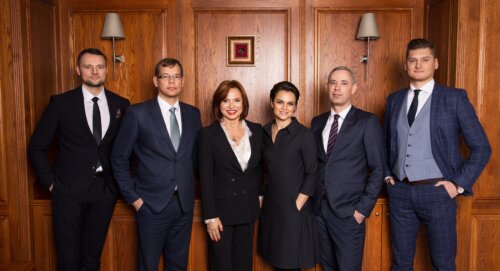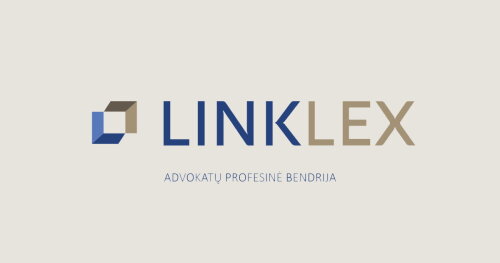Best Collaborative Law Lawyers in Vilnius
Share your needs with us, get contacted by law firms.
Free. Takes 2 min.
Free Guide to Hiring a Family Lawyer
List of the best lawyers in Vilnius, Republic of Lithuania
About Collaborative Law in Vilnius, Republic of Lithuania
Collaborative law, also known as collaborative practice, is an alternative dispute resolution method designed to help parties resolve conflicts amicably without going to court. In Vilnius, Lithuania, collaborative law is gaining traction as a preferred approach for resolving family disputes, business disagreements, and other civil matters. The process involves both parties working alongside their lawyers in a non-adversarial manner, focusing on open communication, shared goals, and mutually beneficial solutions. This method emphasizes cooperation over confrontation, minimizing conflict and potentially preserving relationships.
Why You May Need a Lawyer
People often seek collaborative law assistance in Vilnius for a variety of reasons. Common situations include divorce and family law matters, such as child custody and property division, where preserving a civil relationship is beneficial. Businesses might opt for collaborative law to resolve partnership disputes or contractual differences amicably. It is particularly useful when both parties wish to maintain control over the outcomes, reduce emotional stress, save costs, and ensure privacy, as opposed to undergoing a public court proceeding.
Local Laws Overview
Lithuania's legal system supports collaborative law through statutory recognition of its principles and procedures. Local regulations ensure that any agreements reached through collaborative law are enforceable by the courts if necessary. Key aspects relevant to collaborative law include the confidentiality of discussions, the voluntary nature of participation, and the requirement for each party to be represented by their own legal counsel. The Vilnius legal community offers specialized training for practitioners in collaborative techniques, fostering an environment supportive of this approach.
Frequently Asked Questions
What is collaborative law?
Collaborative law is a legal process that enables parties in a dispute to work together with their lawyers to reach a mutually satisfactory agreement without resorting to litigation.
How is collaborative law different from traditional litigation?
Collaborative law focuses on cooperative problem-solving and negotiation, whereas traditional litigation is often adversarial and conducted in court. Collaborative law aims to preserve relationships and find win-win solutions.
What types of disputes can be resolved through collaborative law?
Collaborative law can be used for various disputes, including family law matters like divorce, child custody, and property settlements, as well as business and contractual disputes.
Is collaborative law legally binding?
Yes, any agreements reached through the collaborative law process can be made legally binding if they are drafted as formal legal documents and approved by the court.
Do I need a lawyer for collaborative law?
Yes, it is essential for each party to have their own lawyer experienced in collaborative law to ensure their interests are represented and to facilitate the negotiation process.
Can collaborative law save me money?
Collaborative law can be more cost-effective than litigation because it typically involves fewer court fees and legal expenses, thanks to its focus on out-of-court resolution.
What happens if the collaborative process fails?
If the collaborative process does not result in an agreement, the parties may opt for mediation, arbitration, or traditional litigation. Collaborative lawyers, however, withdraw from further involvement, and new legal representation must be sought for litigation.
Are discussions during collaborative law confidential?
Yes, confidentiality is a fundamental principle of the collaborative process, ensuring that discussions and documents exchanged during sessions cannot be used outside the process.
How long does the collaborative law process take?
The duration varies, depending on the complexity of the issues and the willingness of parties to cooperate. However, it generally takes less time than court litigation.
Is collaborative law suitable for everyone?
While collaborative law is suitable for many disputes, it may not be appropriate in cases involving domestic violence or where there is a significant power imbalance between the parties. An initial assessment by a collaborative lawyer can help determine suitability.
Additional Resources
Individuals seeking further information about collaborative law in Vilnius can reach out to the Lithuanian Bar Association or consult legal professionals specializing in collaborative law. Organizations like the International Academy of Collaborative Professionals and local collaborative law groups in Vilnius provide educational resources and can connect individuals with trained practitioners.
Next Steps
If you need legal assistance in collaborative law, start by researching and selecting a lawyer experienced in this approach. Schedule a consultation to discuss your situation and explore if collaborative law is the right choice for your case. Ensure that your chosen lawyer is a member of any local or international collaborative law organizations to guarantee they have the necessary skills and credentials. From there, you can work together to develop a strategy that aligns with your goals and circumstances.
Lawzana helps you find the best lawyers and law firms in Vilnius through a curated and pre-screened list of qualified legal professionals. Our platform offers rankings and detailed profiles of attorneys and law firms, allowing you to compare based on practice areas, including Collaborative Law, experience, and client feedback.
Each profile includes a description of the firm's areas of practice, client reviews, team members and partners, year of establishment, spoken languages, office locations, contact information, social media presence, and any published articles or resources. Most firms on our platform speak English and are experienced in both local and international legal matters.
Get a quote from top-rated law firms in Vilnius, Republic of Lithuania — quickly, securely, and without unnecessary hassle.
Disclaimer:
The information provided on this page is for general informational purposes only and does not constitute legal advice. While we strive to ensure the accuracy and relevance of the content, legal information may change over time, and interpretations of the law can vary. You should always consult with a qualified legal professional for advice specific to your situation.
We disclaim all liability for actions taken or not taken based on the content of this page. If you believe any information is incorrect or outdated, please contact us, and we will review and update it where appropriate.
















